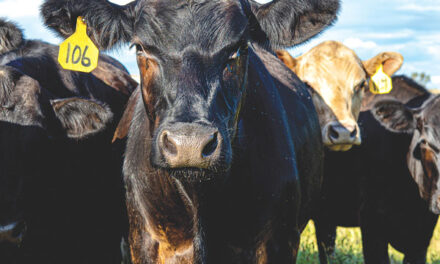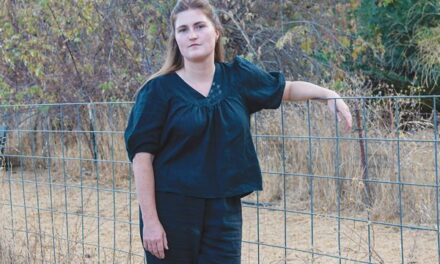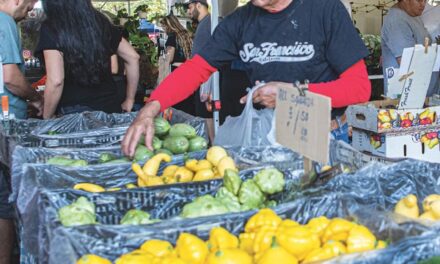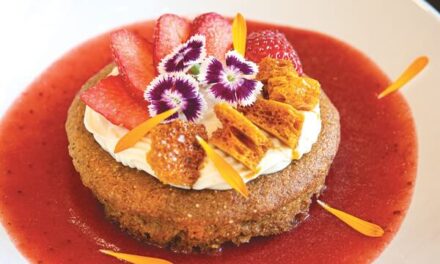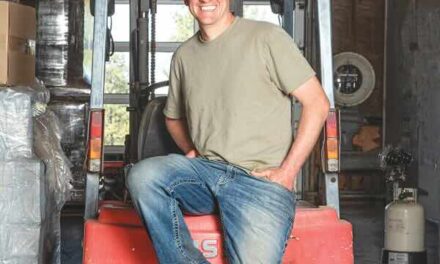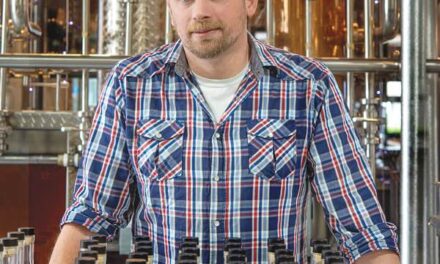A Good Egg
Chickens bring life to Oak Park dumpsite
By Tessa Marguerite Outland
January 2022
What would our city look like if gardens replaced vacant lots? If composted soil took over lawns? And if backyard hens produced our eggs? Oak Park resident Alex Hoang, along with some neighbors and community partners, is finding out.
Hoang is founder of Oak Park Eggery and Tanama Garden. “It was a trash lot, a dumpsite, for decades,” Hoang says about two parcels of land near 12th Avenue and Stockton Boulevard. With the help of community members, the lots are being used to make compost and grow food for the neighborhood.
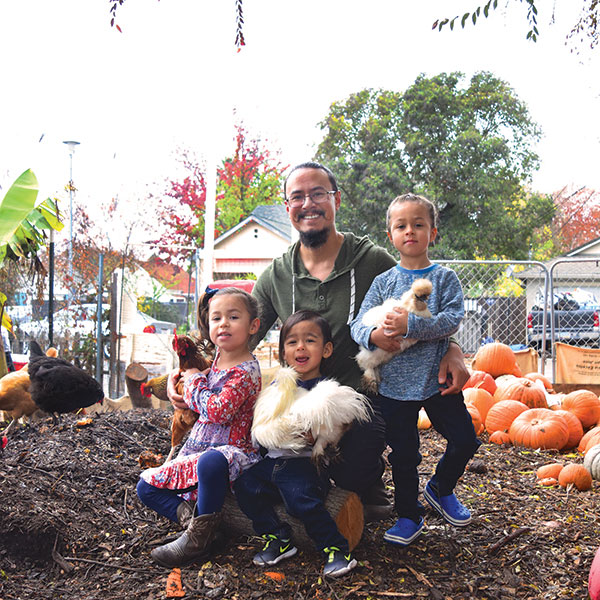
The Eggery is a chicken-powered composting site comprised of kitchen scraps and arborist wood chips. Eggs are given to community members, including many who are elderly or do not own vehicles, and volunteers.
Around the corner is Tanama Garden (Tanama means “butterfly” in Taino, a Caribbean language). Last April, it was an abandoned lot where a house burned down decades ago. Now there’s a flower garden and a young food forest.
“We have a lot of underutilized and vacant spaces in our city,” Oak Park City Councilmember Jay Schenirer says. “What Oak Park Eggery and Tanama Garden have done is make those spaces productive gardens which benefit local communities and address food insecurity—with neighbors, for neighbors.”
Hoang is reaching this goal by building a village in an urban environment with productive spaces. “I’m trying to be intentional with my life,” Hoang says. “I have four kids. I want to get back to the land and be there with my kids, raising them and teaching them skills and how to be adults.”
Hoang has been part of the Oak Park community for about 10 years. He has partnered with other groups and individuals to form a neighborhood co-op. Partners include Amelia Garduno of Always Growing Foundation, Scott Thompson of Oak Park Soil, Fleur Fenner of Fleur Gardening and ReSoil Sacramento.
“One of my overall dreams is to create a sustainable eco village with permaculture design, where people are working cooperatively,” Hoang says.
There are many ways to get involved with these projects, including yoga classes, story time, family days or volunteering in the garden.
Learn more about Oak Park Eggery and Tanama Garden on Instagram.
HATCHING AT HOME
Last February, I wrote about Linda Easton-Waller, founder of GullyRumpus Farm in Rio Linda. In 2021, she launched a program for families to incubate and hatch their own fertile chicken eggs at home. In addition to giving families the chance to participate in hatching newborn chicks, Hatching at Home offers an elementary-level hatching curriculum for teachers and parents who homeschool.
“Last year the big demand was from parents who wanted to bring in an educational enrichment activity into their homes because of the pandemic,” Easton-Waller says. “Now that kids are back in school, we created the curriculum to better serve teachers, librarians, homeschooling groups and afterschool programs that want to hatch chicks.”
The four-week experience is $200. Rental kits include a set of fertile eggs (seven chicken eggs or 12 Japanese quail eggs), incubator, egg candler, brooder box, warming plate, chick feeder, waterer, bedding, feed, step-by-step guide with videos and comprehensive curriculum. At the end of the four-week rental, participants either return the kit or have the option to keep the chicks.
Easton-Waller gets the fertile eggs from Wendee Miller of Featherbaby Farm in Shingle Springs. Miller is a chicken breeder, so hatching families can select the breeds they want. “She specializes in silkies,” Easton-Waller says, “which are a fantastic breed for kids. Plus they are ridiculously cute!”
Find information or sign up for a kit at hatchingathome.com.
Tessa Marguerite Outland can be reached at tessa.m.outland@gmail.com. Follow us on Facebook, Twitter and Instagram: @insidesacramento.




